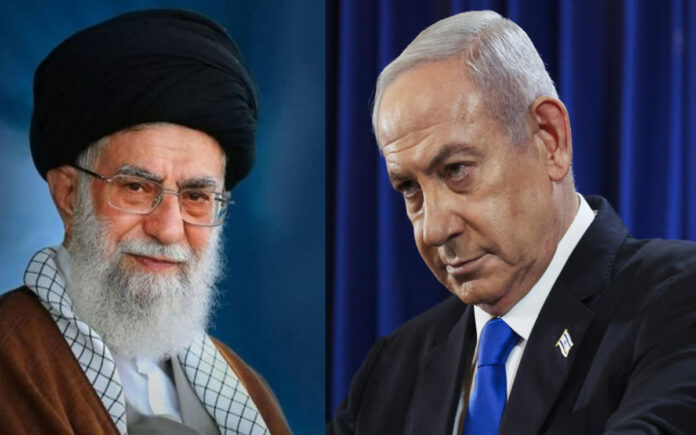Tehran: Tensions between Iran and Israel remain dangerously high, as both nations brace for further conflict. Despite Iran’s lack of response to Israel’s attack on October 26, the risk of full-scale war continues to loom large. Iran has been ramping up its military readiness, with the construction of a significant new defensive project: its first-ever underground tunnel in Tehran. The tunnel, located near the city center, is designed to connect a metro station directly to Imam Khomeini Hospital, offering a crucial underground route to the medical facility in the event of conflict.
For the first time, Tehran is building a tunnel with defensive applications, according to the head of transportation for the Tehran City Council. The project is expected to provide a safe passage for medical services, underscoring Iran’s preparation for potential escalation. Reports last year also indicated the construction of underground shelters and bunkers, further strengthening Iran’s defenses against attacks.
Israel’s Recent Strikes on Iran
In the aftermath of Iran’s October 1 ballistic missile strike on Israel, Israel carried out its first officially recognized strikes on Iranian soil on October 26. These attacks targeted missile factories, air defense systems, and other military infrastructure near Tehran and in western Iran, marking a significant escalation. Israel has stated that the airstrikes were a direct response to Iran’s missile attack.
The Defensive Tunnel and Its Strategic Importance
The newly constructed defensive tunnel in Tehran is an important part of Iran’s preparations. The tunnel will create a direct underground link between Tehran’s metro system and Imam Khomeini Hospital, providing a vital escape route in the event of conflict. The project highlights Iran’s ongoing efforts to fortify its capital and ensure the continued functionality of critical facilities such as hospitals during potential wartime conditions.
Also Read | Oil Prices Retreat on Fears of Oversupply and Sluggish Global Demand
Iran’s Growing Network of Underground Bunkers
Alongside the tunnel, Iran has been reinforcing its underground defense capabilities. Last year, state media released video footage of Iran’s underground bunkers and shelters, which are designed to house air defense systems and weaponry. This marked the first time Iran publicly disclosed images of these strategic locations, highlighting the country’s growing focus on defense infrastructure.
Also Read | Ben & Jerry’s Claims Unilever Silenced Its Support for Palestinian Refugees in New Lawsuit
The Risk of Full-Scale War
The October 26 strikes on Iran have exacerbated tensions between the two nations. Israel’s attacks, which led to the deaths of five people, including one civilian, were framed as retaliation for Iran’s missile assault earlier in the month. Iran has labeled Israel’s actions as a direct assault on its sovereignty and has threatened a counterattack.
With both nations on edge, Israel has warned that any Iranian retaliation will result in further strikes on additional targets. As the situation continues to escalate, there are increasing concerns that the conflict could spill over into a full-scale war, with devastating consequences for both countries and the broader region.



